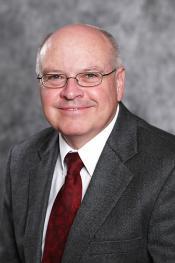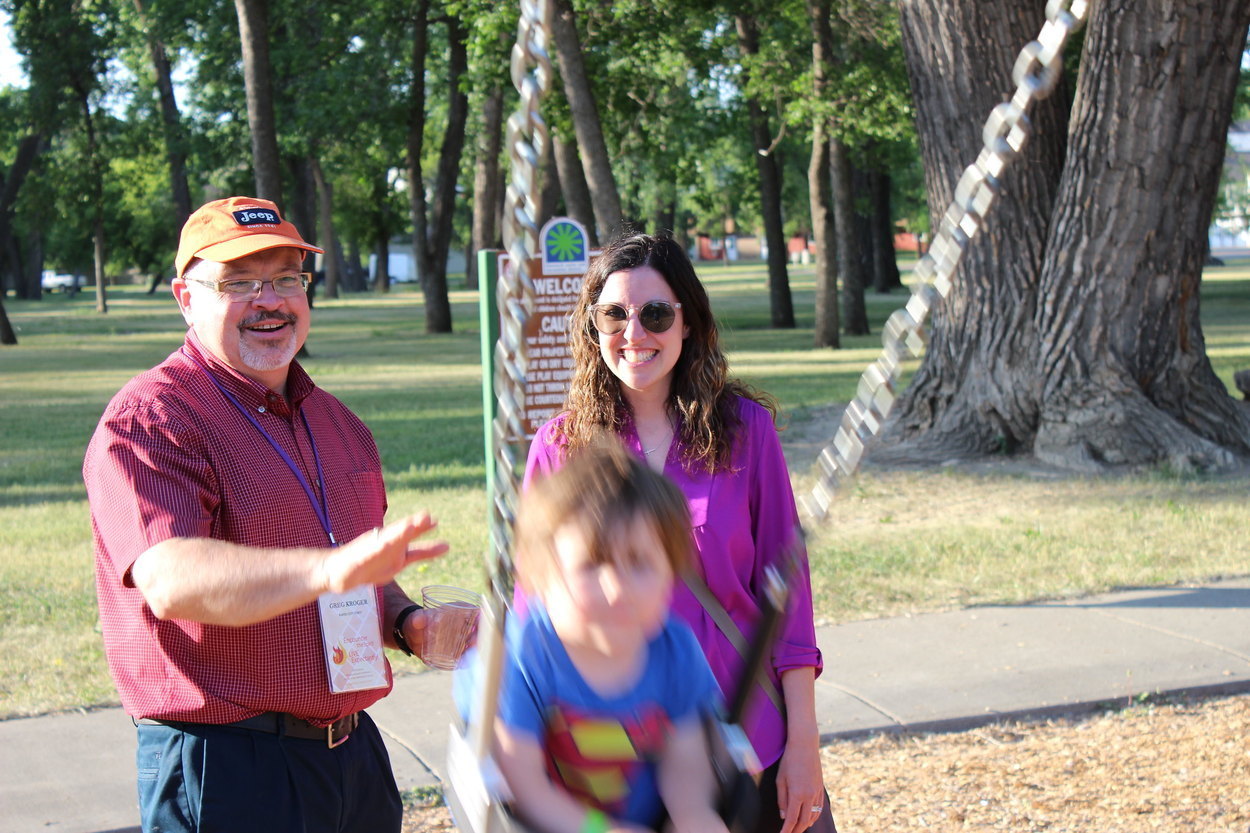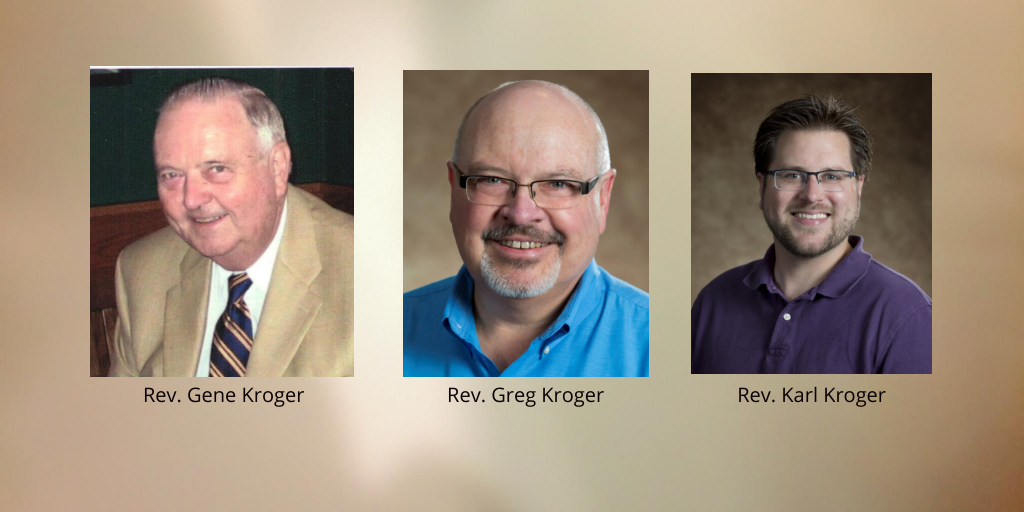
Committed to Christ: Rev. Greg Kroger’s ministry journey

Rev. Greg Kroger. Dakota Conference file photos.
“To all those who claim Christ, there is a call. The question is—what is that call, and how will we live that out.” These are the words of Rev. Greg Kroger, who will retire after 35 years of ministry in the Dakotas Conference.
In confirmation, Greg Kroger first felt his call to ministry. “I began to grow in my faith. I committed to following Jesus. I found myself surrounded by people and friends that were committed to Christ. It was an intentional process of learning to love Jesus and growing in faith,” said Kroger.
Greg Kroger grew up in a family that attended a Presbyterian Church in Omaha and Oklahoma City. When he was a junior in high school, his family moved to Canton, South Dakota. His grandparents lived nearby in Lennox and Parker. His dad's parents were in the carnival business. They traveled around to lots of summer events providing rides and enjoyment to many. His dad, the late Rev. Gene Kroger, was a dealer for A.O. Smith Harvestore.
“When we got to Canton, we visited various churches and settled in at the United Methodist Church,” said Kroger. “My family was very involved. Consequently, I was active in many things at the United Methodist Church in Canton.”
During high school, he continued to grow in his faith and love for God and neighbor. He found his way with a close friend to Oral Roberts University in Oklahoma. While at Oral Roberts, he was part of the production crew for the TV ministry. He traveled with the Richard Roberts World Action Singers.
“It seemed like a good fit. So as an 18-year-old, I made the 600-mile trek to Tulsa,” said Kroger. “I started as a major in telecommunications and eventually changed my major to business.”
One summer, he headed to Wall Drug to work. There he met his future wife, Joyceann. “We met at Wall Drug one summer. We both went our separate ways to finish our college degrees. Joyceann got her degree in nursing from St. Theresa’s in Winona, Minnesota. We reconnected after she had graduated, and I was a senior in college.”
After graduating with his degree in business, Greg’s initial career was in health care administration. “We moved back to the upper Midwest and became an administrator at a clinic and then a couple of hospitals,” he said. “But as the years went on, my call became more apparent. I saw my dad leave his sales career and head to seminary. Finally, it made sense that I should take the same steps. I knew it was the thing I needed to do.”
So, he moved back to Sioux Falls, South Dakota, began coursework at Sioux Falls Seminary, and took a Hilltop United Methodist Church field ministry assignment with the late Rev. Earl Stucke. The following year he served at Wakonda, Irene, and Viborg while continuing to attend seminary.

Rev. Greg Kroger, left, enjoys pushing his grandson on the swing.
Greg followed his father and served at the three-point charge for four years.
“I have lots of enduring connections that I still maintain today. I served one year at Wakonda, Irene, and Viborg as a licensed local pastor, then three years ordained a deacon,” said Kroger. “I drove back and forth to Sioux Falls to complete my seminary degree.”
In 1991 Pastor Greg was appointed to the Church of All Nations and North Highland UMCs in Aberdeen, South Dakota. It was a two-point charge with Westport UMC. Church of All Nations was an opportunity to experience cross-cultural ministry. North Highland UMC was an opportunity to experience the joys and challenges of a newer congregation.
He was ordained an elder in 1992 and appointed to First UMC in Rapid City, South Dakota as associate pastor. “It was a significant time in our lives. Our two boys, Karl and Kaleb, were in their school years—elementary school, middle school, and Karl started high school,” said Pastor Greg. “I was involved in a range of ministry and part of a larger, vibrant congregation.”
In 1999, Rev. Kroger was appointed to Lead and Deadwood United Methodist churches. He led the congregations through a merger and formed what is now known as Trinity United Methodist Church, located in Lead, South Dakota.
After three years, Pastor Greg was appointed as one of the associate pastors at First UMC in Sioux Falls, South Dakota. “Sioux Falls as a community was in transition and becoming a more diverse community. It was inspiring to meet a range of people who were part of a larger, vital congregation,” said Kroger.
He was called by Bishop Deborah Lieder Kiesey, who served as the episcopal leader for the Dakotas Area from 2004 to 2012, to serve as the district superintendent for the Glacial Lakes District and then the Bishop’s Assistant for Connectional Ministries.
“I enjoyed working with Bishop Deb. One of the highlights was the work of the Roman’s Twelve Task Force that reshaped the Dakotas Conference. Another highlight was the disaster response work needed because of flooding in North Dakota and fires in South Dakota. The support and work around new church starts and congregational development also stands out,” said Greg.
Since his time on the cabinet, he has served at First United Methodist in Rapid City and Pierre, South Dakota. At both congregations, he has mentored new leaders in ministry and embraced technology as part of ministry.
“Technology allowed us to hold together our ministry during COVID and embrace the future,” he said. “We need to embrace the next generation of leaders, get them in place, and support them. My role and intentions are to support and encourage the next generation.”

The Kroger ministry legacy.
Pastor Greg is part of a legacy ministry. Three generations of his family—his father, Rev. Gene Kroger, and his son, Rev. Karl Kroger are ordained elders of the Dakotas Conference.
“I think that because we have multiple generations in ministry, this prompts an immediate embrace of the question, ‘Where is God is leading me?’ Ordained ministry is already on the list. You see the opportunities and challenges of ministry first-hand,” said Pastor Greg.
In retirement, he and Joyceann will be living in Pine Island, Minnesota, where he'll likely continue working in ministry in some capacity. Because Pine Island is near Rochester, Minnesota and the Mayo Clinic, there are many possibilities for employment in non-medical positions.